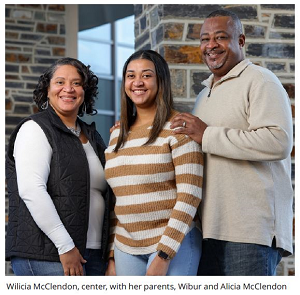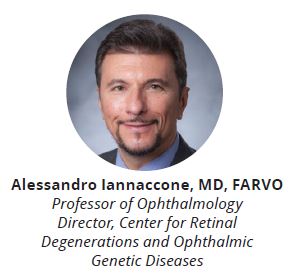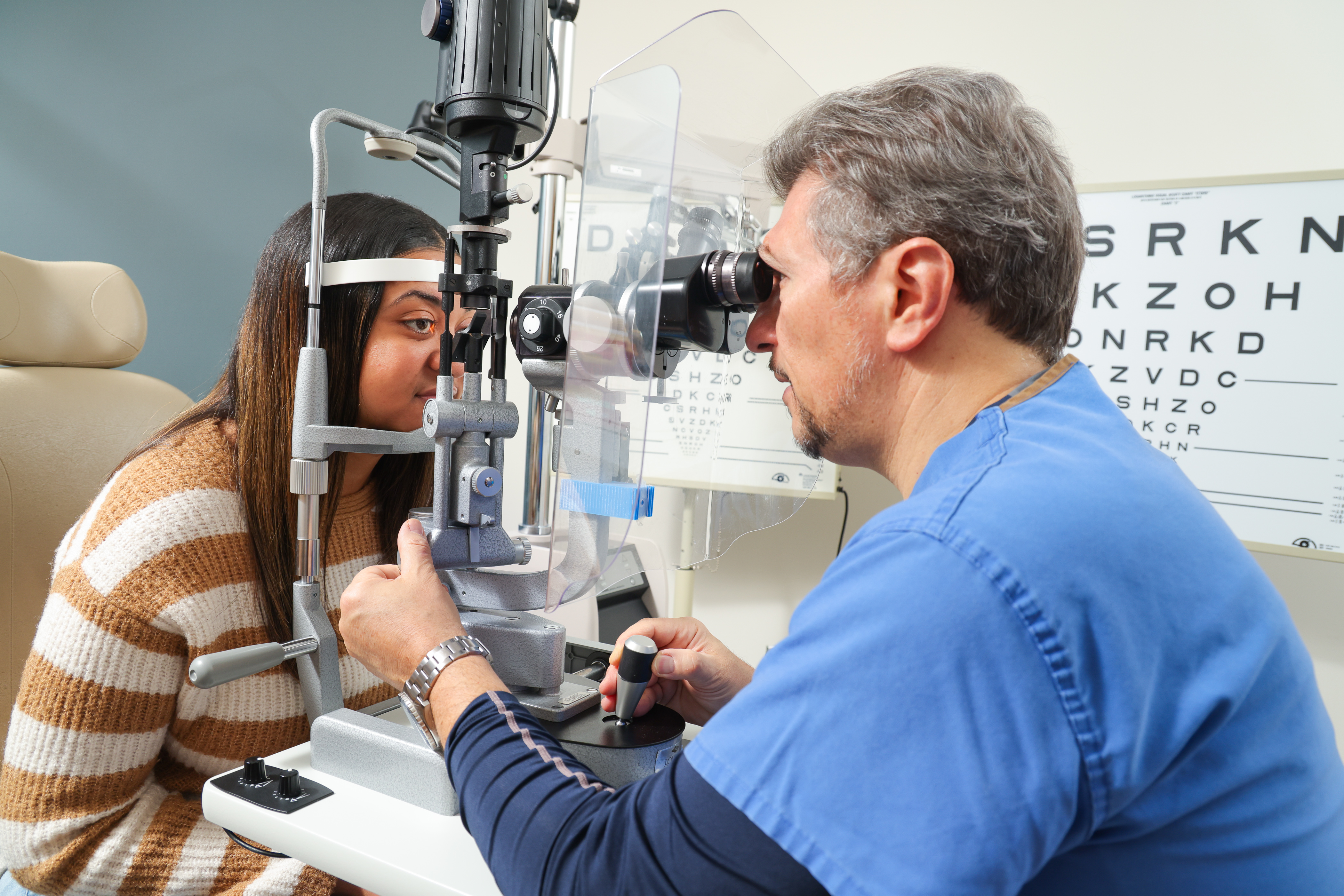
She believed she could, so she did.
That’s the motto of Wilicia McClendon, now 21, who is fierce with determination despite living with Usher Syndrome. She has her sights set on completing her undergraduate degree and opening a daycare to serve children living with disabilities.
Wilicia’s parents, Wilbur and Alicia McClendon, learned their daughter was profoundly deaf at a year old. At age 10, she began having trouble with her vision. Doctors predicted their daughter would be blind by early adulthood, and nothing could be done to save her vision.
The McClendon’s are no stranger to challenges, their home was destroyed by Hurricane Katrina in New Orleans, and they relocated to Laurel, Mississippi. No matter the obstacles they faced, Wilbur and Alicia were not going to accept this diagnosis, and they set out on a mission to save her sight.
Wilicia was ultimately diagnosed with Usher Syndrome, a rare, inherited genetic condition that affects hearing and vision. A major symptom is retinitis pigmentosa (RP) a form of inherited retinal degeneration (IRD) that causes night-blindness and peripheral vision loss through the progressive degeneration of cells in the retina.
 They began to research doctors that treat Wilicia’s condition and found Alessandro Iannaccone, MD, FARVO - an international expert and one of few ophthalmologists in the world who treats RP and IRDs - while he was practicing in Memphis, Tennessee. At Wilicia’s first appointment, they were relieved to learn that Iannaccone felt he could help slow severe vision loss. She began a regimen of retinal injections, dietary supplements and vitamins that have shown to mitigate, at least in part, the rate of disease progression.
They began to research doctors that treat Wilicia’s condition and found Alessandro Iannaccone, MD, FARVO - an international expert and one of few ophthalmologists in the world who treats RP and IRDs - while he was practicing in Memphis, Tennessee. At Wilicia’s first appointment, they were relieved to learn that Iannaccone felt he could help slow severe vision loss. She began a regimen of retinal injections, dietary supplements and vitamins that have shown to mitigate, at least in part, the rate of disease progression.
“If we had accepted what her other doctors said and moved on, I can only imagine where Wilicia would be today,” said her father, Wilbur. “Alicia and I wanted to make sure our daughter had the best available care, so that's what we set out to do.”
Iannaccone, joined Duke Eye Center in 2017 to launch the Duke Center for Retinal Degenerations and Ophthalmic Genetic Diseases. The McClendon’s were so impressed with the care he provided in Memphis, they will follow him wherever he goes, no matter how far they must travel.
“Wilicia’s condition, Usher syndrome type 1, is a progressive disease that has significantly affected her vision. We have been fighting to keep it under control by taking advantage of the results of clinical trials and other research that have identified treatments to slow rate of progression,” said Iannaccone.
After gaining control of disease progression, the next step was to discover the cause for her condition. At Duke Eye Center, broader genetic testing is available and was used to help discover the cause for her condition. This allows Wilicia to become eligible for other treatment options and for gene therapy which is expected to become available in the near future.
“By discovering the exact type of genetic changes at play, we now also know that a special category of investigational medications, known as translational readthrough-inducing drugs, or TRIDs, could be potentially used to treat Wilicia’s condition, said Iannaccone.
The third step in her treatment was to bring the inflammatory component to her condition under better control. This too proved challenging initially and caused some important and rapid vision loss in one eye, but over the past several years it has been under far better control her condition has stabilized.
 The opportunity for Wilicia to enter a clinical trial may be a true game changer. While clinical trials are a good-faith, evidence-based attempt to find a cure or a new treatment for a problem, there is a chance they may be unsuccessful. When faced with the prospect of incurable progressive vision loss, trials represent an incredible beacon of hope for IRD patients. “We have the moral obligation to try as hard as possible to bring available trials to these patients. I have been working on IRDs to get to this point for more than 30 years, and I remain committed to this goal now more than ever,” said Iannaccone.
The opportunity for Wilicia to enter a clinical trial may be a true game changer. While clinical trials are a good-faith, evidence-based attempt to find a cure or a new treatment for a problem, there is a chance they may be unsuccessful. When faced with the prospect of incurable progressive vision loss, trials represent an incredible beacon of hope for IRD patients. “We have the moral obligation to try as hard as possible to bring available trials to these patients. I have been working on IRDs to get to this point for more than 30 years, and I remain committed to this goal now more than ever,” said Iannaccone.
Today, Wilicia is a student at the University of Southern Mississippi (USM), where she is pursuing a Bachelor of Science degree in child and family science. She transferred to USM after graduating from Jones College in May 2021 with two associates degrees.
College has presented a new set of challenges for Wilicia, but it has not deterred her. “I just have to keep pushing, and one day I will have my own daycare for children with disabilities – inspired by her mother’s struggle to find a daycare when she was growing up,” she said.
The McClendon’s perseverance, along with the help of Iannaccone and other specialists, have helped Wilicia overcome predictions that she would be severely disabled and unable to lead a normal life.
Wilicia can now advocate for herself, but her parents continue to be a driving force in her success by supporting her goals with her best interests in mind, standing in the background in case she needs them. “Being an advocate for Wilicia has taught us to speak to other parents of kids with not just hearing and vision problems but speech and other disabilities. We tell all of them, speak for your child,” Alicia said.
Most importantly, Wilicia is committed to speaking up, “I can’t let my disability stop me,” she said.
Portions of this article have been reprinted with permission from The University of Southern Mississippi.